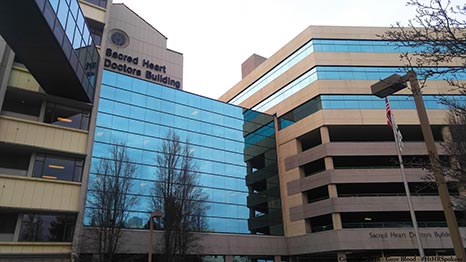Alcohol
Alcohol is generally considered unsafe in pregnancy. There is no known safe amount of alcohol consumption in pregnancy. Alcohol exposure in pregnancy can cause developmental problems in the fetus that are lifelong.
Fetal Alcohol Syndrome (FAS)
FAS is a disorder caused by exposure to alcohol use in pregnancy. It is associated with growth problems, mental disability, and behavioral issues. FAS occurs most often when a pregnant individual drinks heavily.
Smoking
Smoking, nicotine, vaping and marijuana are not recommended in pregnancy.
Nicotine
Nicotine permanently damages a fetus’s lungs and brain. Nicotine also decreases blood supply to the fetus affecting oxygen and nutrient delivery to the baby through the placenta.
Risks to the baby with tobacco smoke in pregnancy:
- Preterm delivery
- Delayed growth
- Birth defects such as cleft lip and palate
- Higher rate of still birth
- Increased risk of Sudden Infant Death Syndrome (SIDS)
- Increased risk of obesity, diabetes and asthma
- Increase risk of behavioral issues in children such as ADHD (attention deficit and hyperactivity disorder)
These risks are also present for significant exposure to second hand smoke in pregnancy.
If you use nicotine in the form of tobacco smoke or vaping it is recommended that you quit or cut down as much as possible. Please consult with your provider as we can help give tools and information to help you quit if you desire.
Marijuana
Use of marijuana has also been shown to increase the risk of premature delivery, still birth and ADHD when the baby is exposed in pregnancy.
Illicit drugs
Illicit drugs including methamphetamines, cocaine, heroin, and fentanyl can cause serious side effects in pregnancy. It is not recommended that you use these substances but if you are using them and find yourself pregnant, please seek help right away. Let us know if you are using these substances so that we can help you and your baby.
Opioids
are often used to treat pain. If you are taking opioids in pregnancy under the direction of a doctor, they are considered safe for you and your baby. You should only take opioids as prescribed.
Opioid use disorder
Some people using opioids develop an addiction to the drug and have difficulty stopping their use. The misuse of opioids can cause serious complications to your pregnancy including placental problems, fetal growth problems and preterm birth. There is also a chance that your baby will also become dependent on the opioids and go through withdrawal after birth. This is called neonatal abstinence syndrome (NAS).
Treatment of Opioid use disorder
Methadone and buprenorphine are the most common medications used to treat opioid use disorder. Both are safe in pregnancy and have not been found to cause birth defects.
Resources to help:
Quit Smoking Hotline: 1-800-QUIT-NOW (784-8669)
Substance Abuse and Mental Health Services Administration: 1-800-662-HELP (4357) www.samhsa.gov
Smoke Free Website: www.smokefree.gov
Spokane Regional Opioid Task Force: www.drugpreventionspokane.org


